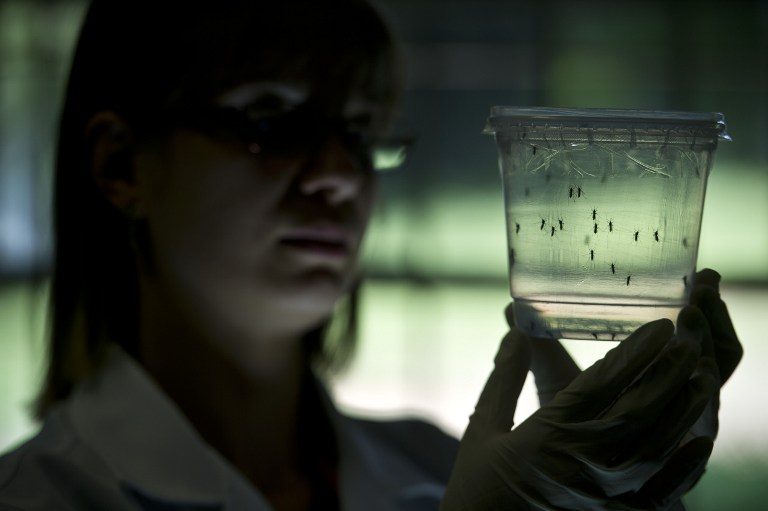SUMMARY
This is AI generated summarization, which may have errors. For context, always refer to the full article.

MIAMI, USA – Money to fight the spread of Zika virus in the United States is “essentially all spent,” top US doctors said Tuesday, September 13, urging Congress to come to agreement on new funding measures.
The United States and its territories have recorded more than 19,600 Zika infections, and Florida is seeing a rise in locally transmitted cases of the virus which is particularly dangerous for pregnant women because it can cause microcephaly, an irreversible deformation of the brain and skull, in infants.
Already, 18 babies have been born with Zika-related birth defects in the United States, said Beth Bell, director of the US Centers for Disease Control and Prevention’s National Center for Emerging and Zoonotic Infectious Diseases.
However, a $1.1 billion funding bill was rejected last week for the third time by US Senate Democrats, after Republicans inserted language that would end funding for a major abortion provider, Planned Parenthood.
In a conference call with reporters Tuesday, leading doctors from the CDC, the American College of Obstetricians and Gynecologists and the American Academy of Pediatrics warned that critical elements of the public health response and research on vaccines may come to a halt by month’s end.
“Funding for Zika research, for prevention and for control efforts – including mosquito surveillance and control – is essentially all spent,” said Bell.
“Without additional resources from Congress, critical public health work may not be accomplished.”
She said lawmakers have provided no funds for health authorities in the next fiscal year, which begins in October.
“There will be severely limited capacity to support mosquito control and surveillance, no funds to conduct multi-year studies needed to protect pregnant women by better understanding the link between Zika disease and birth defects, and no support to states and territories like Florida and Puerto Rico to manage cases of Zika-diagnosed patients and increase lab capacity,” Bell warned.
Important work on vaccine research may be suspended or cancelled, and efforts to devise better tests for Zika will also be slowed or stopped altogether, she said.
“Allowing this to happen needlessly puts the American people at risk and will result in more Zika infections and potentially more babies being born with microcephaly and other birth defects.”
Political battle
Last week, Senate Democrats voted unanimously to stop the legislation from moving forward, opposing measures that would have blocked funding for reproductive health group Planned Parenthood and allowed Confederate flags to fly at military cemeteries.
The vote, which required 60 votes to pass in the Republican-controlled chamber, failed 52 to 46.
Since President Barack Obama made his initial $1.9 billion funding request in February, the CDC has transferred tens of millions of dollars to boost states’ ability to respond to the spread of Zika. Other money has been moved from coffers meant to fight Ebola.
Without a new release of funds, the cashflow will end for Florida, which announced eight new non-travel related cases of Zika on Monday, bringing the state’s total of local cases to 62 and the overall count in Florida to 771, including 86 pregnant women.
“We will not have any additional funding to help Florida continue to respond to local transmission,” said Bell.
Nationwide, the United States and its territories, including Puerto Rico, have reported a total of 1,751 cases of pregnant women showing lab evidence of Zika infection.
Karen Remley, executive director of the American Academy of Pediatrics, which represents 66,000 pediatricians and pediatric specialists, urged leaders to consider the lifelong impact of Zika on affected babies.
“This is going to be a major public health issue and having adequate funding to care for these children is very, very important,” she said.
“It is the most important health issue that will ever occur to the families that have a baby who is born with Zika,” she added.
“We need to get the federal government to act together, comprehensively, to be able to support these children, these families and the infrastructure that is needed.” – Rappler.com
Add a comment
How does this make you feel?
There are no comments yet. Add your comment to start the conversation.